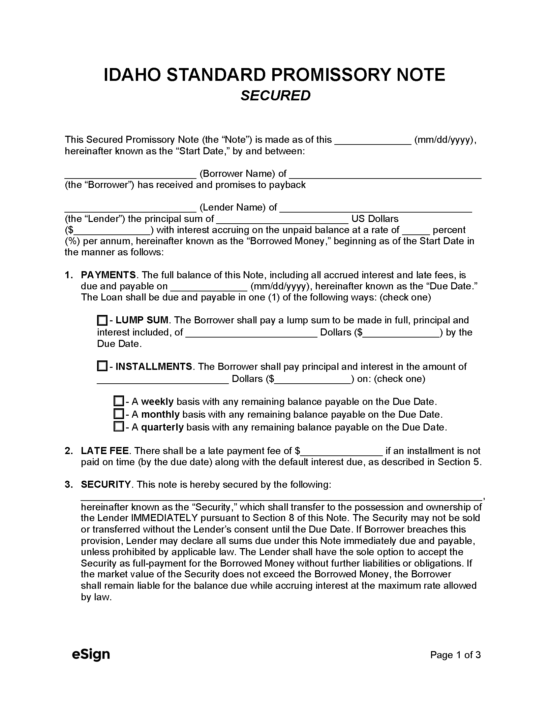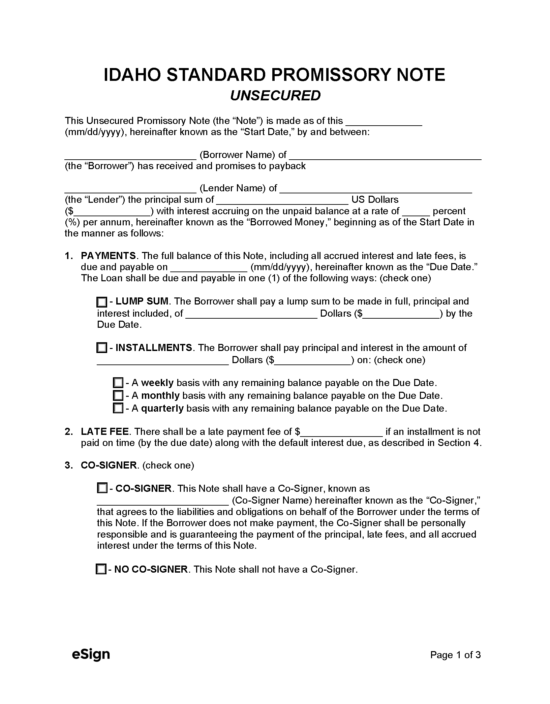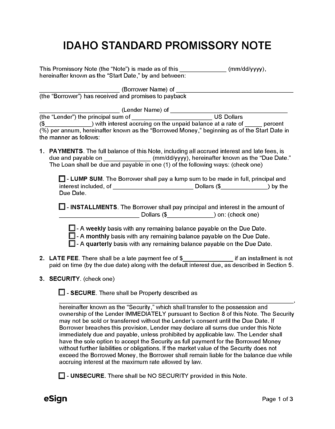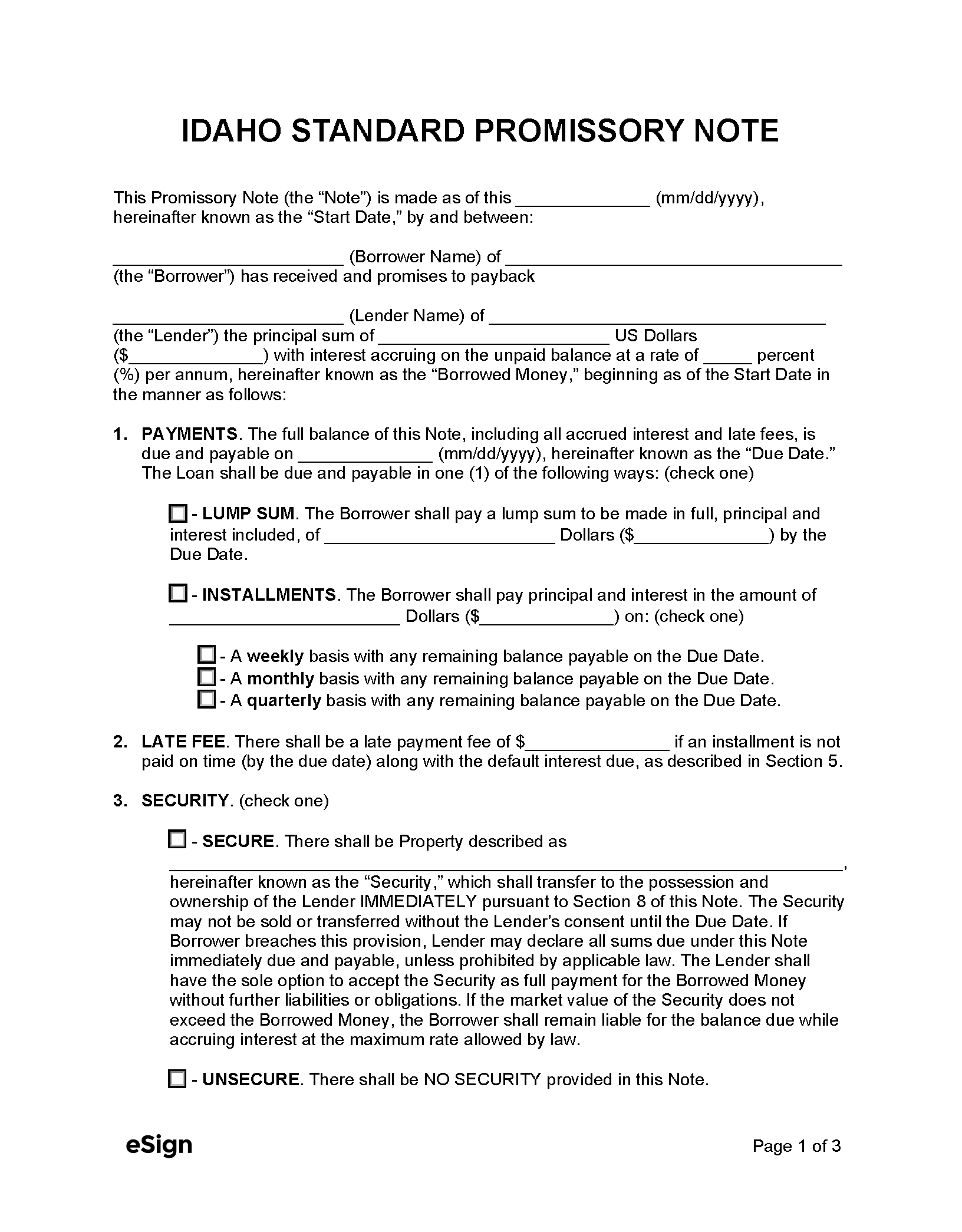Types (2)
 Secured Promissory Note – A money lending agreement that affords protection to the lender in the form of collateral.
Secured Promissory Note – A money lending agreement that affords protection to the lender in the form of collateral.
Download: PDF, Word (.docx), OpenDocument

Download: PDF, Word (.docx), OpenDocument
Laws
- Interest & Usury Laws: Title 28, Chapter 22
- Usury Rate in General (§ 28-22-104(1)): 12%, unless there is a written contract fixing a different rate, in which case the interest rate cannot exceed the contract rate.
- Usury Rate for Money Judgments (§ 28-22-104(2)): 5% plus the base rate set by the Idaho State Treasurer.

